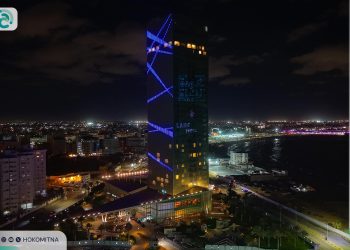London, April 17:
By Asma Kenshil
Having left Libya 6 months before the revolution, I had greatly anticipated my first visit back to . . .[restrict]a new Libya. Although I actively follow Libya news and attend many lectures and debates in London, I spent every day wondering what it looks like in reality. The country had been through a bloody revolution, many lives were taken and -almost- the entire top of the hierarchy of government had been removed. What lay ahead for Libya after the death of Gaddafi is constant in western media and the topic of many of the Middle Eastern lectures at prominent universities. From the liberation of Sirte to the swearing-in of the transitional government, it has all been scrutinised, analysed and dissected by international and local analysts alike.
However, what the media doesn’t show are the efforts that are occurring on a grassroots as well as administrative level in Libya. Obviously, stories of Libya splitting into East and West, or armed gangs controlling the borders, airports, hospitals, what have you, are more interesting for international readers. However, when you arrive in Libya, you instantly realise that this is, simply put, media hype. That is not to say that the country is completely stable, or that people should not bring to light what is happening, but, it is important to show both sides of the story, and more importantly, portray the real issues that are happening on the ground.
The issue of arms isn’t as common as the media lets you believe. The countless images of young men sporting Ak 47’sand thuwaar (freedom fighters) driving trucks mounted with Anti Aircraft machinery that we see on the evening news seems outdated and is not a regular sight. Although most of my time was spent in Tripoli, I visited Azzawya and Sabratha, and I had a similar feeling.
The most noticeable difference is, of course, the independence flag – instead of the previous solid green flag. And it seems that there are many more flags in Libya than I seem recall. There are now images of martyrs where previously slogans from the Green Book and Gaddafi hung. Some of the ads on the billboards that have no reference to the previous regime are still there, but you can see that they are outdated, announcing shows or exhibitions that were to take place sometime in 2011.
Traffic seems to be a bigger issue than previously in Libya, and this is said to be the result of 11 refugee camps in Tripoli, as well as lack of proper healthcare outside of the capital. A few traffic police officers can be seen in parts of Tripoli, wearing their new uniforms with the NTC logo on the side, and imprinted with the name of the ministry in both Arabic and English. The NTC and transitional government would fare well if they were to make police presence more visible, as this would deter theft and crime during this phase. The highest numbers of police seem to be located at checkpoints between cities, which may be reminiscent of the revolutionary days, where each city acted as its own unit.
Businesses appear to be operating as usual, and the cafés and restaurants are bustling with diners, both young and old. As for consumer spending, the main streets where the shopping districts are located appear to be crowded. Some business owners, however, say that spending is down and they are hoping it will pick up soon when salaries are increased and are paid out consistently.
One of the most encouraging signs in Libya is the budding civil society that currently consists of 2,000 Non-Governmental Organisations (NGOs) in total with approximately 1,200 based in Tripoli. There are NGOs for all sorts of issues ranging from human rights, to youth engagement, to women empowerment, and they operate in almost every city in Libya, North, East, South and West.
I attended several NGO workshops and association meetings, and was glad to see the diversity in the types of NGOs as well as the people involved. There were some meetings where mainly English was spoken that wereattended by international representatives, and one such event included words by the American ambassador and two representatives from the Senate, a republican and a democrat – trying to encourage democracy the American way it would seem.
Other events consisted of representatives from Libyan NGOs and a team of international development consultants,or Libyan consultants helping Libyan organisations. But what impressed me the most was that the participants’ knowledge and determination in creating a civil society that would be a force to deal with. They understood their rights and duties, they were willing to deal with local, regional and international agencies, and they demanded to be part of the decision-making process in all aspects of the reconstruction of Libya.
Members of the Tripoli Local Council attend these meetings, and the NGO representatives have built networks with each other and the government. Previously, it was unheard of that individuals or groups would demand the time of an official, let alone be part of the decision-making process and actually hold these officials accountable for their actions – or in some cases, lack of. With all the issues that Libya is undergoing, and with some people in and outside of Libya doubtful at its current progress, I believe that we are on the right track because the people have the will to do so, and will ensure that their government is accountable for what it has promised its citizens, and its martyrs.
Asma Kenshil is a Master’s student at the London School of Economics, and is doing her dissertation on Libyan NGOs. She lived most of her life between Canada and the UK with her family, but spent several years studying and working in Libya.
Tweet
[/restrict]




